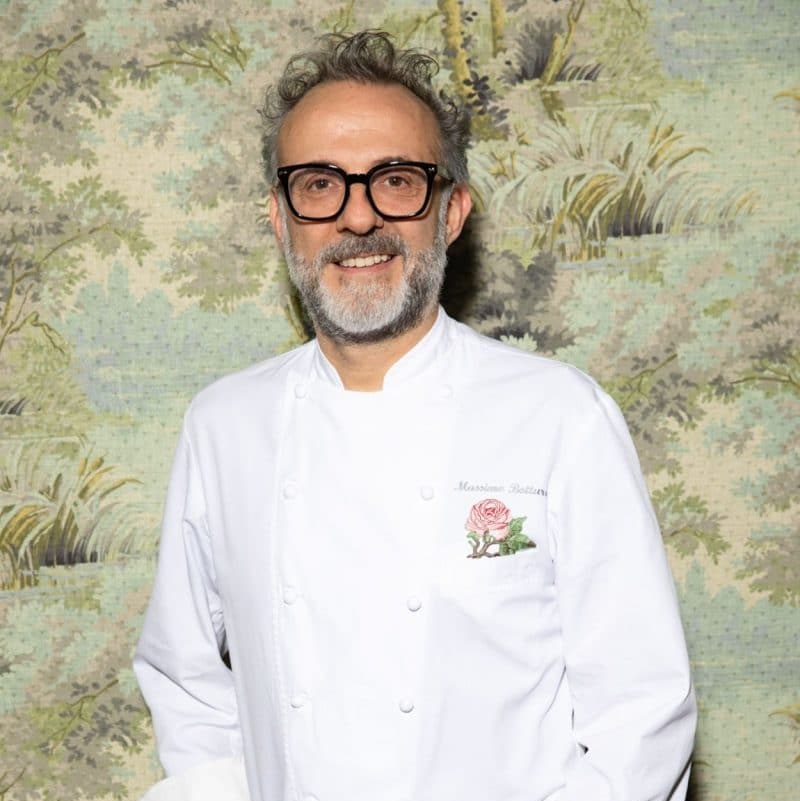[vc_row][vc_column][vc_column_text]
[arm_restrict_content plan=”1,” type=”show”] After LVMH and Kering, cosmetics giant Estée Lauder was one of the last to announce that it was going into the production of hydroalcoholic gel and was going to multiply donations. Since the Covid-19 pandemic has been raging around the world, the fashion and luxury sector has been in crisis. Falling demand from Chinese buyers, closure of factories in Italy’s main manufacturing regions, the coronavirus is by extension impacting the entire luxury economy. Here is the latest detailed report on the commitment of luxury brands to face an unprecedented health crisis.
Luxury sector hit hard
A horror scenario that begins in East Asia in the last quarter of 2019. China, the engine of the luxury industry, becomes the cradle of the new Covid-19 epidemic. A health crisis on an unprecedented scale that has a very strong impact on China’s fashion and luxury sector, both commercially – as consumption, particularly of luxury goods, is plummeting – and industrially – as production is forced to slow down in the face of shrinking demand.
The epidemic is rapidly taking on a global dimension and is becoming a pandemic feared by all. Given the importance of China in the production of French and international clothing, countries around the world are facing a disruption in their production chain and must reduce their supply. And because Chinese consumers account for 35% of luxury purchases worldwide, world leaders in fashion and luxury are suffering from a slump in their activities: scarcity of tourists, falling demand, declining turnover.
While European countries are gradually announcing their containment and the cessation of “all non-essential production activities”, it is the fashion and luxury industry as a whole that is therefore being impacted. The interweaving of countries at the productive level and the suffocation of China, a key country for luxury groups, are leading to the closure of multiple networks of boutiques all over the world, and then, inevitably, of the various production workshops.
In Italy, Gucci announced the closure of its production sites in the Italian regions of Tuscany and Marche until at least the end of March. The northern region of Italy, home to 60% of the country’s textile and clothing manufacturers, is to close its doors to millions of consumers.
In France, the luxury house Chanel took the decision on Thursday, 19 March in a press release to “progressively close, for two weeks, all its production sites in France, Italy and Switzerland as well as its Haute Couture and ready-to-wear, craft and jewellery workshops, in accordance with the latest instructions from the government“. With this, Hermès also announces the closure until further notice of all its plants in France, i.e. some forty factories and tanneries.
The postponement of various fashion events is also unavoidable: one after the other, the major Italian houses announced the cancellation of their Croisière fashion show scheduled between March and June 2020: Gucci, Prada, Giorgio Armani, Versace and then Max Mara. In France, the Hyères International Fashion and Photography Festival chaired by designer JW. Anderson is postponed to a later date, as is the long-awaited equestrian event “Saut Hermès” at the Grand Palais.
As a result, the total economic loss is estimated at several billion for luxury brands; as is it the case for exemple for the American brand Ralph Lauren, which estimates a drop in sales of between 51 and 65 million euros in 2020.
In exceptional circumstances, exceptional mobilization
Faced with a war of a new form, the mobilization of the luxury and fashion sector is unanimous. The major houses are committed to fighting together against the worst scourge of the past decades.
The giants Hermès and L’Oréal as well as the luxury group LVMH (Guerlain, Dior, Givenchy) have all announced diverting their production sites to manufacture hydroalcoholic gel in large quantities for free distribution to French hospitals, thus contributing to better equipping healthcare personnel and countering the problems of shortages.
The luxury giant Kering also announced in a press release published on Sunday, 22 March that it had converted the production workshops of its subsidiaries Balenciaga and Saint Laurent into mask manufacturing sites, and that thus three million surgical masks from China would be handed over “in the coming days” to the French health services. Gucci, Kering’s Italian flagship company, has committed to manufacturing one million surgical masks and more than 50,000 gowns for healthcare personnel in Italy, the country most severely affected by the pandemic.
Likewise, the Italian brand Prada has set itself the goal of producing 80,000 protective gowns and 110,000 masks at its Montone production site in Italy, by April 6.
The Inditex group (Zara, Pull & Bear, Massimo Dutti, etc.) has made its production plants available to the Spanish Government to manufacture the equipment needed by the country’s hospitals, namely gloves, overshoes and other facial protection products.
A united fashion, therefore, standing up against a common scourge and drawing on its resources to find the technical and material means to support the global effort against the coronavirus epidemic.
A stream of donations
In addition to these concrete actions, the big names in the luxury industry have also made pledges of up to several million euros per day. This financial mobilization shows the mutual support of the fashion and luxury industry to fight, collectively, against the coronavirus epidemic.
In order to support Italy, the nation most affected by the epidemic, Giorgio Armani donated 1.25 million euros to Italian hospitals on March 10, followed by Donatella Versace who donated 200,000 euros to the San Raffaele Hospital in Milan. The Benetton family has also decided to act through its holding company Edizione to help four Italian hospitals located in Treviso, Rome and Milan by releasing a sum of 3 million euros.
Other Italian luxury players have mobilized to fight the coronavirus crisis in their own way, notably by supporting research projects at various health institutes in the country. Without disclosing the amount, the watch brand Bulgari thus announced that in February it had made a donation to the Lazzaro Spallanzani Institute in Rome to help its research into a vaccine against the Covid-19 virus. At the same time, Dolce & Gabbana made official its financial support for the Milan-based Humanitas University in favour of a pioneering study on the virus.
In order to support Italy, the nation most affected by the epidemic, Giorgio Armani donated 1.25 million euros to Italian hospitals on March 10, followed by Donatella Versace who donated 200,000 euros to the San Raffaele Hospital in Milan. The Benetton family has also decided to act through its holding company Edizione to help four Italian hospitals located in Treviso, Rome and Milan by releasing a sum of 3 million euros. The Moncler brand, for its part, has pledged 10 million euros to help with the construction of a hospital near Milan in the Lombardy region, one of the most severely affected by the epidemic.
Other Italian luxury players have mobilized to fight the coronavirus crisis in their own way, notably by supporting research projects at various health institutes in the country. Without disclosing the amount, the watch brand Bulgari thus announced that in February it had made a donation to the Lazzaro Spallanzani Institute in Rome to help its research into a vaccine against the Covid-19 virus. At the same time, Dolce & Gabbana made official its financial support for the Milan-based Humanitas University in favour of a pioneering study on the virus.
Several other major fashion groups also indicated that they would provide financial aid, such as the Richemont group (Cartier, Van Cleef & Arpels and Chloé), which pledged 1.2 million euros to fight the pandemic, and the Zadig & Voltaire brand, which announced on Friday, March 20, that 20% of its online sales would be donated to the Paris Hospitals Foundation. “It seems to us essential to support the work and the Fondation des Hôpitaux de Paris et de France, which provides concrete help to all healthcare personnel in their daily lives and in the accomplishment of their missions“, said Cecilia Bönström, artistic director of the brand.
Many and varied initiatives which testify to the great surge of solidarity emanating from the fashion and luxury industry. A sector that intends, after this painful episode, to be reborn grown and strengthened. Especially since it also enjoys the support of personalities from all around the world. Starting with the front-line fashion influencer Chiara Ferragni who launched a fundraising campaign on her Instagram account for San Raffaele Hospital in Milan. The result is the record sum of 3 million euros collected in less than 24 hours. To date, more than 4.1 million euros have been raised.
Read also> LVMH to supply several million surgical masks in France
Featured photo: © Lancôme
[armelse] [/arm_restrict_content][/vc_column_text][/vc_column][/vc_row][vc_row][vc_column][vc_column_text]
[arm_restrict_content plan=”1,” type=”hide”] After LVMH and Kering, cosmetics giant Estée Lauder was one of the last to announce that it was going into the production of hydroalcoholic gel and was going to multiply donations. Since the Covid-19 pandemic has been raging around the world, the fashion and luxury sector has been in crisis. Falling demand from Chinese buyers, closure of factories in Italy’s main manufacturing regions, the coronavirus is by extension impacting the entire luxury economy. Here is the latest detailed report on the commitment of luxury brands to face an unprecedented health crisis.
Luxury sector hit hard
A horror scenario that begins in East Asia in the last quarter of 2019. China, the engine of the luxury industry, becomes the cradle of the new Covid-19 epidemic. A health crisis on an unprecedented scale that has a very strong impact on China’s fashion and luxury sector, both commercially – as consumption, particularly of luxury goods, is plummeting – and industrially – as production is forced to slow down in the face of shrinking demand.
The epidemic is rapidly taking on a global dimension and is becoming a pandemic feared by all. Given the importance of China in the production of French and international clothing, countries around the world are facing a disruption in their production chain and must reduce their supply. And because Chinese consumers account for 35% of luxury purchases worldwide, world leaders in fashion and luxury are suffering from a slump in their activities: scarcity of tourists, falling demand, declining turnover.
This article is reserved for subscribers.
Subscribe for FREE for 1 month with the promotion code TELEWORK!
Unlimited access to all the articles and live an original reading experience, preview content, exclusive newsletters …
I subscribe!
Already have an account? Log in.
Featured photo: © Lancôme
[armelse] [/arm_restrict_content][/vc_column_text][/vc_column][/vc_row]








